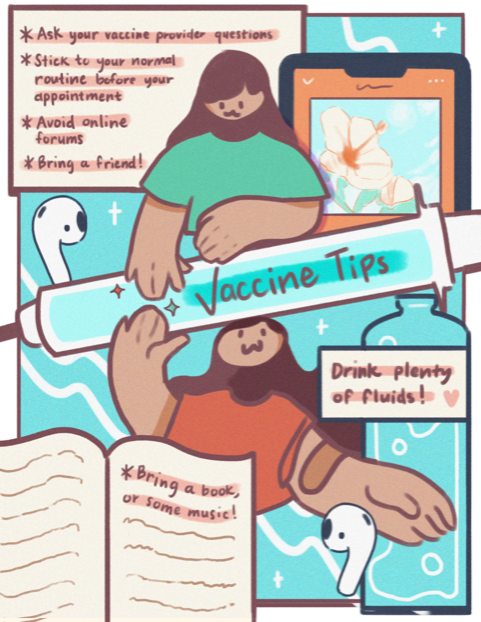While approximately 51% percent of U.S. adults have received at least one dose of the COVID-19 vaccine, many who have received or are planning to receive the shot are experiencing vaccine anxiety, which can make the experience uncomfortable and even discourage them from getting their first or second dose.
Daily RX defines vaccine anxiety as a sense of unease around the COVID-19 vaccine due to a fear of extreme side effects, skepticism about how quickly it was released or other factors. If a reaction is severe enough, it can even lead to physical symptoms after vaccination such as sweaty palms, abdominal pain and heavy breathing. These symptoms can also mimic those of an allergic reaction, further propagating the anxiety.
University Emergency Medical Response (UEMR) has already responded to several vaccine anxiety-related calls at the UT Southwestern vaccination site on campus. UEMR is usually called for dizziness or a suspected allergic reaction, but upon arrival, EMTs find that the patient is doing much better after some water and reassurance from the nurses.
UEMR Captain Tess Helfrich said that vaccine anxiety is likely caused by a conjunction of generalized anxiety around COVID-19 itself and other factors such as misinformation, a fear of needles and the fact that the trip to the vaccination site is some people’s first time leaving their house in over a year. She said that this phenomenon isn’t unique to COVID-19, as she saw something similar while interning on the Ebola vaccine campaign in West Africa.
“COVID has been such a hot topic of discussion, and I think that in and of itself makes [the vaccine] a very stressful thing,” Helfrich said. “Everyone has been impacted by this in some way, shape or form – the baseline level of anxiety is already high.”
PSYCOM and Mental Health America recommend several measures that can help prevent vaccine anxiety. Seeking out information about the vaccine from reliable sources, avoiding online forums that fuel your anxiety and not allowing yourself to be carried away by “what-ifs” can help you feel more confident about getting your shot.
There are also some practical measures you can take on the day of your vaccination to help stave off anxiety. Helfrich suggested reading a book or listening to music at your vaccination appointment in order to create a pleasant distraction. If unanswered questions about the vaccine or potential side effects are the source of your anxiety, most providers administering the vaccine would be happy to answer them.
“Definitely stick to whatever your routine is. If your appointment is at 11:00 and you usually have a bagel and some water for breakfast at 9:00, stick to that,” Helfrich said. “If you need to, have a friend drive you there and back. Keep drinking water – stay hydrated. Do things that are good for your body.”





